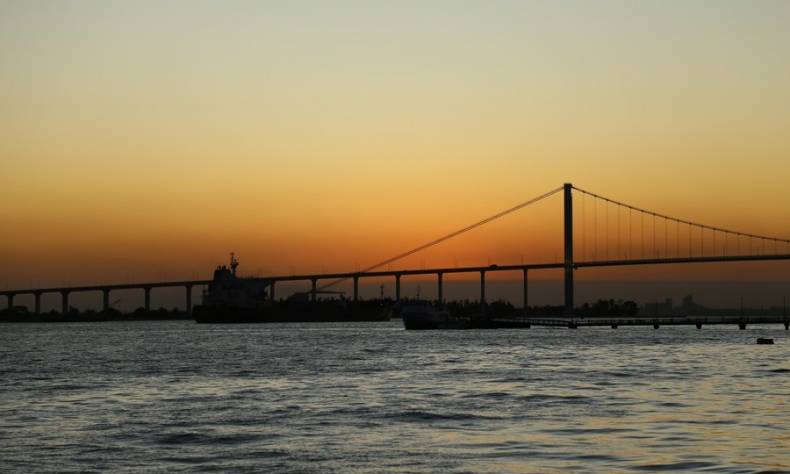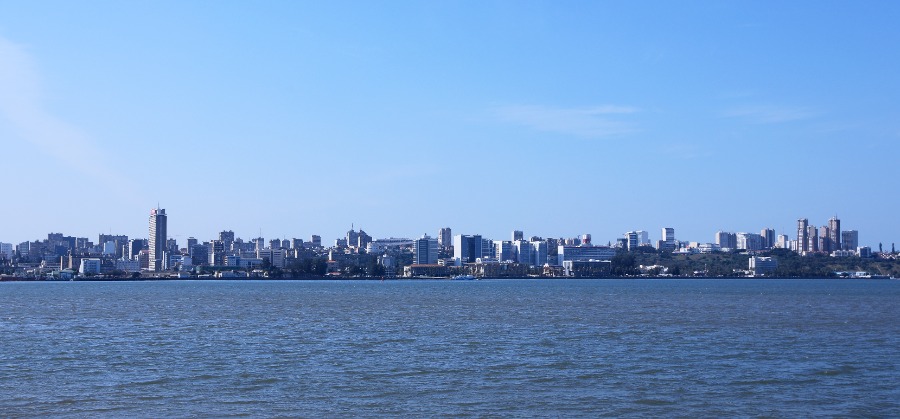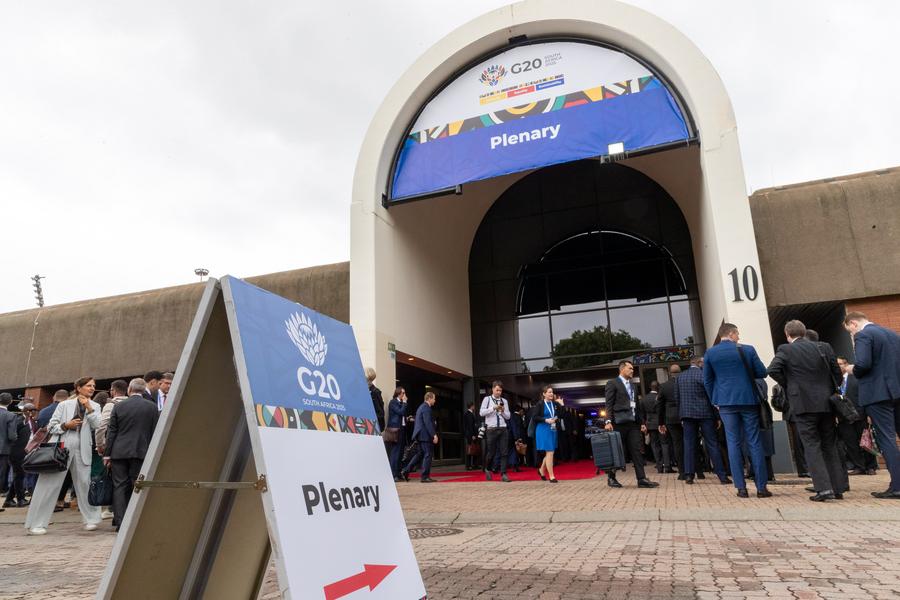Enduring Ties

China and Mozambique celebrate 50 years of robust friendship, strategic cooperation, and shared development goals.
This year marks the 50th anniversary of diplomatic relations between China and Mozambique. To commemorate this milestone, ChinAfrica spoke with Maria Gustava, Mozambique’s ambassador to China, about the state of bilateral relations, China-Africa cooperation, and key developments shaping the global landscape. The following is an edited excerpt from the interview.
ChinAfrica: Over the past five decades, what, in your view, are the key milestones in the development of China-Mozambique bilateral relations?
Maria Gustava: Mozambique and China share a special and long-standing relationship of friendship, solidarity, and cooperation, dating back to Mozambique’s struggle for independence in the early 1960s. Over the past 50 years, both sides have continuously worked together to consolidate, enhance, and expand these excellent bilateral ties. As a result, Mozambique and China have built a strong partnership rooted in mutual respect and shared development goals.
One of the most significant milestones came in 1975, when Mozambique and China established diplomatic relations on the same day Mozambique gained independence, marking the beginning of a deep friendship and post-colonial cooperation.
In the 2000s, economic collaboration expanded, with China supporting major infrastructure projects such as the Maputo-Katembe Bridge and key road networks under the framework of the Forum on China-Africa Cooperation (FOCAC).
In 2016, the relationship was elevated to a “comprehensive strategic cooperative partnership,” deepening collaboration in trade, agriculture, and energy. In the 2020s, it was characterised as an “all-weather community with a shared future for the new era.” New Chinese initiatives such as the Belt and Road Initiative (BRI) have added momentum, especially in direct investment, trade, and natural gas development, aligning with Mozambique’s industrialisation goals.
These milestones reflect a relationship that has evolved from political solidarity to multifaceted economic and social cooperation.
In recent years, Mozambique has made significant progress in areas such as energy, infrastructure and environmental conservation. Could you share your perspective on the most transformative developments in the country and how they are shaping Mozambique’s long-term national vision and international partnerships, particularly with China?
Mozambique is strategically located in the Indian Ocean region, with a coastline of 2,700 km, and is endowed with abundant energy, tourism, agriculture, and mineral resources. It serves as a natural gateway to neighbouring landlocked countries for transport and services. Against this backdrop, Mozambique has adopted policies aimed at transforming its resources to foster economic and social development and support regional integration.

Key projects are underway in the energy sector, such as LNG initiatives in the Cabo Delgado, Inhambane and Sofala provinces, along with the modernisation of railways and ports, and environmental conservation efforts like sustainable forestry. These developments are reshaping the country’s economy and global partnerships.
China has been a key partner in this transformation. In the energy sector, Chinese investment in LNG infrastructure is enabling Mozambique to harness its natural resources for long-term growth. On the infrastructure front, projects like the Nacala Corridor have enhanced regional connectivity, boosting trade and industrialisation. Meanwhile, cooperation in renewable energy, including solar and hydropower, and climate resilience reflects a shared commitment to green development.
These efforts position Mozambique as a regional hub and demonstrate how China-Africa cooperation can drive inclusive, win-win progress.
The fourth China-Africa Economic and Trade Expo will be held in June in Changsha, Hunan Province. What are your expectations for the event, and how do you assess the role of such platforms in promoting China-Africa cooperation?
The expo in Changsha is expected to serve as a vital platform for Africa and China to strengthen trade relations by showcasing African products such as agricultural produce and mineral resources, and expanding market access under China’s tariff-free policies. It also offers an opportunity to connect with other African markets and business leaders.
Beyond trade, the expo promotes investment and facilitates deals in sectors including manufacturing, digital economy, and green energy – aligning with Africa’s industrialisation needs. It also encourages greater people-to-people interaction through business exchanges and fosters connectivity and communication between the two sides.
Equally important, the platform enhances dialogue and strengthens policy coordination in areas such as supply chains, technology transfer, and small- and medium-sized enterprise development.
Such platforms exemplify the practical, action-oriented spirit of China-Africa cooperation under FOCAC and the BRI.
This year marks the first time the G20 Summit will be held in Africa. What significance does this hold for Africa’s role on the global stage? In your view, how might it help to address pressing challenges such as regional conflicts, food security, and climate change?
The upcoming G20 Summit in South Africa will be a historic moment for the continent, marking the first time this prestigious group convenes in Africa. It clearly demonstrates international recognition of Africa’s growing role in global affairs.
The summit offers a platform to amplify African voices on the global stage. The continent will have the opportunity to raise critical concerns such as reforming global governance, increasing climate finance, and securing debt relief. This will strengthen the Global South’s advocacy for justice and fair treatment in the international arena.

It also presents a timely opportunity to tackle some of Africa’s most urgent challenges, including mobilising international support for conflict resolution and promoting peace and stability. Furthermore, the summit can highlight the need for integrated approaches to food security – through technology transfer, agricultural mechanisation, and ecosystem conservation. Climate adaptation will also be a priority, as Africa seeks increased funding and support for the transition to renewable energy.
Ultimately, the summit will provide a unique chance to reinforce South-South cooperation. China’s active role in the G20 could help to bridge divides between Africa and the Global North.
With the return of US President Donald Trump to the White House, the US has scaled back its engagement with Africa. What impact do you foresee from this shift, and what can African countries do to mitigate potential negative effects?
The US scaling back engagement presents both challenges and opportunities for Africa.
Increased tariffs and reduced trade incentives – such as the African Growth and Opportunity Act – as well as cuts to social assistance programmes like health care, are already creating uncertainties and risks for African economies. These changes could directly affect progress in poverty reduction, employment, health care, education, and more.
Similarly, any reduction in security cooperation may undermine efforts to combat conflict, terrorism, and social unrest.
On the other hand, this shift offers African nations an opportunity to diversify partnerships within the Global South, deepen regional integration under the African Continental Free Trade Area, and leverage alternatives like Chinese investment in infrastructure and industrialisation.
In collaboration with other emerging economies, African countries can take proactive steps, such as enhancing South-South and intra-African trade, and engaging more actively in multilateral forums. These measures can help to mitigate the risks.
 Facebook
Facebook
 Twitter
Twitter
 Linkedin
Linkedin
 Google +
Google +










